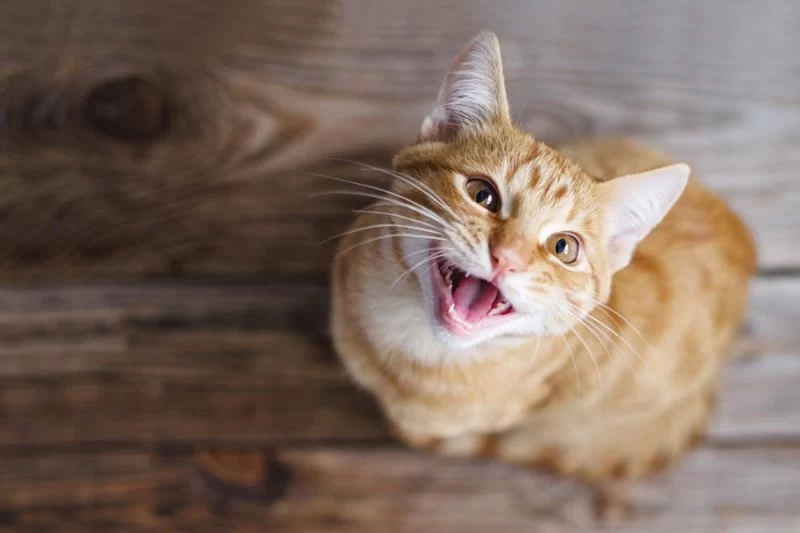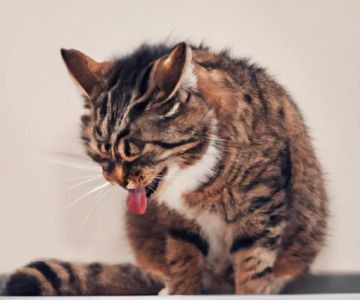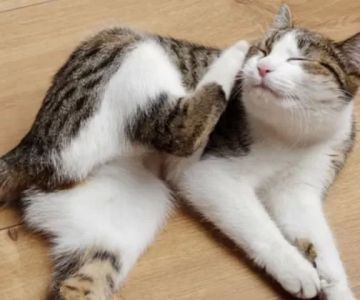- why-does-my-cat-keep-meowing-at-the-door
- psychological-reasons-behind-door-meowing
- is-it-a-behavioral-issue-or-a-health-warning
- how-to-stop-your-cat-from-meowing-at-the-door
- real-life-case-what-happened-to-lucy
- when-to-seek-professional-help
1. Why Does My Cat Keep Meowing at the Door?
If your cat is meowing non-stop at the door, you're not alone. Many cat owners experience this behavior and find it frustrating, especially late at night or early in the morning. Whether it’s your bedroom, the front door, or the bathroom, your cat might be sending a message. Understanding why your cat is doing this is the first step to solving the problem. It might be rooted in instinct, learned behavior, or a deeper emotional or physical need.
2. Psychological Reasons Behind Door Meowing
2.1 Separation Anxiety and Social Needs
Cats are often portrayed as independent, but many form deep bonds with their humans. When separated by a door, your cat may feel anxious or lonely, leading to persistent vocalization. If your cat follows you from room to room and cries when separated, this could be the cause.
2.2 Curiosity and Territory
Cats are naturally territorial and curious creatures. A closed door is a barrier that they instinctively want to overcome. If your cat meows at the front door, it may be responding to outside noises, smells, or even the presence of other animals.
2.3 Conditioned Behavior
Your reaction to the meowing could be reinforcing the behavior. If you open the door every time they meow, your cat learns that persistence pays off. Even yelling can be interpreted as attention.
3. Is It a Behavioral Issue or a Health Warning?
3.1 Rule Out Medical Causes
Sometimes excessive meowing is a sign of underlying health issues. Hyperthyroidism, hearing loss, or cognitive dysfunction in older cats can cause increased vocalization. If your cat’s behavior has changed suddenly or is accompanied by other symptoms, a veterinary check-up is essential.
3.2 Stress and Environmental Changes
Recent changes in the home—such as moving, a new pet, or even rearranged furniture—can stress a cat and result in door-meowing behavior. Cats thrive on routine, and disruptions can lead to vocal protests.
4. How to Stop Your Cat from Meowing at the Door
4.1 Behavioral Training and Positive Reinforcement
Start by not giving in to the meowing. Instead, wait for quiet moments before opening a door or offering treats. Reward your cat when they remain calm to reinforce quiet behavior. Consistency is key.
4.2 Environmental Enrichment
A bored cat is a noisy cat. Make sure your feline friend has toys, scratchers, window perches, and regular play sessions. Puzzle feeders and interactive toys can keep their mind and body engaged.
4.3 Use of Barriers and Deterrents
In some cases, using safe deterrents like double-sided tape or motion-activated air sprayers near doors can discourage your cat. However, these should be used cautiously and in conjunction with positive training.
4.4 Routine and Predictability
Cats appreciate a stable routine. Feeding, playtime, and sleep should happen at regular intervals. A predictable environment reduces stress and curbs attention-seeking behaviors like meowing at doors.
5. Real-Life Case: What Happened to Lucy?
Lucy, a 3-year-old calico, began meowing persistently at her owner’s bedroom door every night. At first, her owner thought it was just a quirky phase. But as the behavior escalated, sleep was disrupted, and tension grew. After visiting Hidden Brook Veterinary, Lucy was diagnosed with mild anxiety triggered by a new puppy in the house. With professional guidance, a consistent play schedule, and the use of calming diffusers, Lucy’s behavior improved dramatically within a few weeks.
6. When to Seek Professional Help
6.1 Know the Signs
If your cat’s meowing becomes excessive, includes other behavioral changes, or is disruptive to daily life, it may be time to consult a professional. Sudden behavioral shifts are often linked to medical or psychological conditions.
6.2 What a Vet Can Do
A veterinarian can help rule out physical issues and, if needed, recommend behaviorists or prescribe mild anxiety medications. Clinics like Hidden Brook Veterinary offer personalized care, including behavioral assessments and tailored treatment plans to restore peace to your home.
6.3 Prevention for the Future
Addressing the issue early on prevents escalation. Creating a stimulating, loving, and structured environment helps your cat feel secure—and keeps those door-meowing nights to a minimum.












